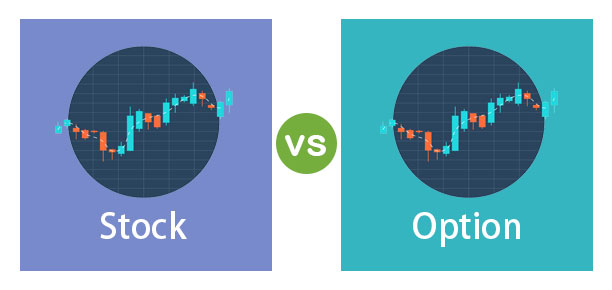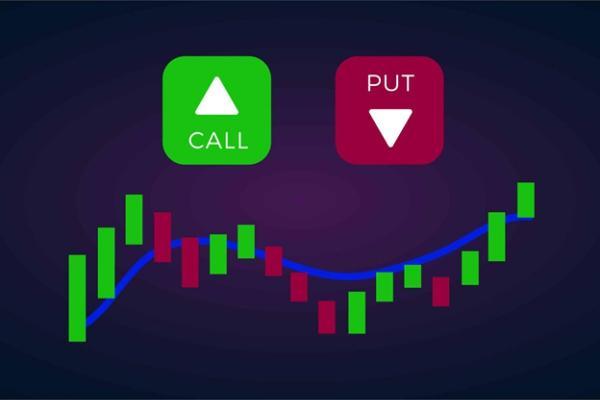
When you are looking to invest in the stock market, you have a few different options. You can buy stocks, trade options, or do a combination of the two. In this article, we will discuss the pros and cons of trading stock options versus trading stocks. By understanding the differences between these two investment strategies, you can make an informed decision about which is right for you!
We discuss:
- What Are Stock Options?
- Pros / Benefits Of Trading Stock Options
- Pros / Benefits Of Trading Stocks
- Cons Of Trading Options
- Cons Of Trading Stocks
- Should You Trade Both Stocks and Stock Options?
- Conclusion
What Are Stock Options?

Stock options are a derivative product. Meaning their value is derived from the underlying stock. Options contracts give the holder the right to buy or sell a certain number of shares of stock at a set price within a certain time frame. Options can be used to hedge against risk, generate income, or speculate on the future movement of a stock.
As an example, let’s say you are bullish on XYZ stock and believe it will increase in value over the next year. You could buy 100 shares of XYZ stock for $50 per share. Alternatively, you could buy one XYZ call option with a strike price of $50 and an expiration date one year from now. This option would give you the right to buy 100 shares of XYZ stock for $50 per share anytime in the next year. If XYZ stock is trading at $60 per share, you could exercise your option and buy the stock to close the trade for $50 per share and make a profit of $1000.
Pros / Benefits Of Trading Stock Options
Options provide leverage, meaning you can control a large position with a small investment. In other words, they utilize much less buying power than buying the stock outright.
Options require much less buying power than stocks. To buy 100 shares of ABC stock at $50 requires $5000. However, to control the 100 shares (1 option contract) by buying a Call option may cost only around $250.
The other benefit to the example just covered is that by buying the Call option we are limiting our downside risk to the $250 amount paid for the option. If the stock were to tank to the downside and we owned the stock outright, we could lose much more.
Options can be used to hedge against risk. For instance, we may have most of the positions in the portfolio betting long and the stock market will go up. In this case, we may want to have some short positions to hedge in case the market goes down. So in other words we play both sides of the market.
Options can be used to generate income. The way options generate income is by selling options premium. When you sell an option, you are collecting the option premium as income.
Options can be used to speculate on the future price movement of a stock. If we think a stock is going to go up, we can buy a call option. If we think a stock is going to go down, we can buy a put option.
Options provide the ability to tailor a position to your specific risk tolerance and investment goals. One can pick the probability of a stock option remaining OTM out of the money and expiring worthless. Of course, there is a risk/reward tradeoff. So the higher the probability of the option expiring worthless, the lower the option premium received.
Pros / Benefits Of Trading Stocks

Stocks provide ownership in a company. By owning a small portion of a company like Johnson and Johnson, you are entitled to a small portion of the company’s earnings and assets.
Stocks can generate capital gains. When a company’s stock price increases, shareholders can realize a capital gain. A capital gain is a difference between the purchase price and the sale price of an asset.
Some stocks also pay dividends. Dividends are payments made by a company to its shareholders. Dividends are typically paid out quarterly. Companies choose to pay dividends for a variety of reasons, but it is generally a sign that the company is doing well.
Cons Of Trading Options
Options can be complex and confusing for new investors. So there is a little legwork upfront to understand how options work along with the strategies that can be used. Check out this free options trading HERE to understand better how options work and the strategies that can be used.
Options can be risky if you are learning and go too big. Since you are using leverage you need to stay small. Especially while you are learning to trade options. You can also utilize stop losses or spreads to limit risk.
You may also be subject to margin calls if the value of your stock portfolio falls below a certain level. A margin call is when your broker asks you to add more money to your account or sell some of your positions. This can be a very stressful situation if you are not prepared for it.
Time decay must be taken into account when trading options. This is because options lose value as they get closer to expiration. This is a downside if you are buying options and a benefit if you are selling option premium.
Cons Of Trading Stocks
Stocks can be volatile, meaning their prices can rise and fall sharply in a short period. Many things affect the value of a stock. For example, news about a company’s financials, the overall market, or even the weather can all affect stock prices. Geopolitics can also play a role.
When buying stock, you are using much more buying power than when you are utilizing options. So your risk may be higher when buying stocks outright in many cases.
At the same time, some stocks require a long-term investment horizon. You may have to wait years for your investment to pay off.
Should You Trade Both Stocks and Stock Options?
If you are new to investing, you may want to start with stocks. Once you have built up some experience and knowledge, you can begin to trade stock options.
For more experienced investors, trading both stocks and stock options can help diversify your portfolio. This can help you manage risk and potentially generate more income.
Both stocks and stock options have their pros and cons. It is up to the individual investor to decide which is right for them.
Conclusion
There is no right or wrong answer when it comes to deciding whether to trade stocks or stock options. It ultimately depends on your individual goals and risk tolerance. However, both options can be beneficial in different ways. If you are new to investing, you may want to start with stocks. Once you have built up some experience and knowledge, you can begin to trade stock options. For more experienced investors, trading both stocks and stock options can help diversify your portfolio. This can help you manage risk and potentially generate more income.
Whatever route you decide to take, make sure that you do your research and understand the risks involved before making any trades. Happy investing!
What are your thoughts? Do you prefer trading stocks or stock options? Let us know in the comments below.
If you found this article helpful, please share it with your friends and family! Thank you for reading!”
Author Bio: Hi, my name is Darren. I have been trading stocks for over 30 years and love sharing my knowledge with others. OptionsFinanceProfits.com is a one-stop-shop for all things related to stock option trading and investing. We provide tutorials, articles, news, and tips to help you make smarter decisions when it comes to managing your money. Thanks for reading!”
Darren Steves
darrensteves.com & optionsfinanceprofits.com.
Good post. I learn something new and challenging on sites I stumbleupon everyday. Its always interesting to read articles from other authors and practice something from other sites.
Comments are closed.